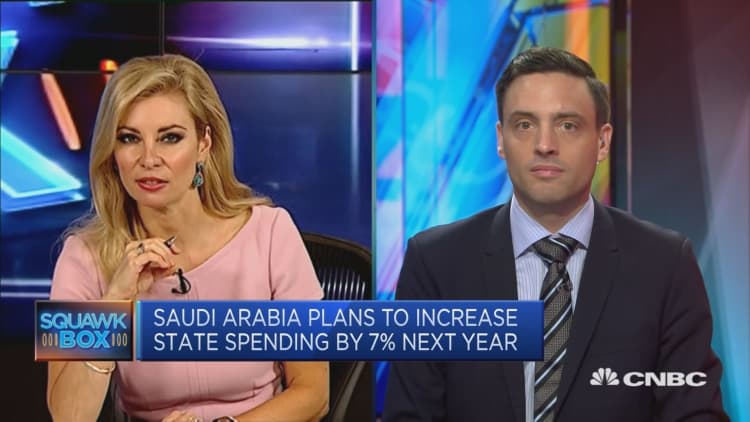The king of Saudi Arabia announced Thursday that he is shaking up his Cabinet, capping a tumultuous period that has plunged the kingdom into its biggest international crisis since King Salman took the throne nearly four years ago.
The royal family has endured three months of intense scrutiny after Saudi agents killed and dismembered Washington Post columnist Jamal Khashoggi in Istanbul in October. The CIA has reportedly concluded that King Salman's successor, Saudi Crown Prince Mohammed bin Salman, was complicit in the slaying.
The incident has drawn international condemnation and raised questions about Crown Prince Mohammed's ability to shepherd the kingdom through a period of far-reaching social and economic reform. It has also renewed attention on the Saudi-led war in neighboring Yemen, which has created the world's worst humanitarian crisis.
On Thursday, Saudi Arabia announced former Finance Minister Ibrahim al-Assaf would succeed Adel al-Jubeir as the nation's foreign minister. Al-Jubeir, the public face of Saudi Arabia during the Khashoggi crisis, was appointed minister of state for foreign affairs.

The king also appointed a new national security advisor and head of the National Guard, and named new ministers for education, media and the sports authority. King Salman also issued a royal decree to restructure the Political and Security Affairs Council helmed by Crown Prince Mohammed.
Thursday's reshuffling elevates members of Saudi Arabia's old guard who had been marginalized after King Salman took the throne and consolidated power under Crown Prince Mohammed. The move, which projects an image of stability, was widely expected throughout the rumor mill that constantly buzzes around the Saudi royal family.
It is unlikely though to silence critics of the regime or make any real difference in policy.
The reshuffling actually empowers some of Crown Prince Mohammed's closest allies, who have been appointed to Cabinet positions, according to Ali Shihabi, founder of the Arabia Foundation. Shihabi, who has at times defended the government during the Khashoggi crisis, cautioned against linking the incident with Thursday's decree.
"The recent restructuring of the intelligence agency was a direct result of the Khashoggi murder but otherwise today's changes also address structural issues (like the need to increase the senior bandwidth in the foreign policy space) that have been on the table for a while," he said Thursday on Twitter.
Incoming Foreign Minister Al-Assaf is best known for his role as finance minister, a post he held for 20 years under former King Abdullah. At that time it was an extremely powerful position, with oversight of several portfolios, including management of sovereign wealth fund assets that would eventually become the Public Investment Fund, as well as approval for many of the megaprojects championed by the former king.

Soon after King Salman came to power, Crown Prince Mohammed redistributed both the economic and defense portfolios to fall under his direct supervision, and Al-Assaf was made a minister of state.
Al-Assaf was among the princes and businessmen detained last year at the Ritz Carlton in Riyadh. The kingdom said the detentions were part of a crackdown on corruption, though analysts have said they also functioned as a political purge that further consolidated power under Crown Prince Mohammed.
A focus of the crackdown was graft connected to the approval process for megaprojects that Al-Assaf previously supervised. He was eventually cleared of wrongdoing and released without being compelled to surrender money or assets, Reuters reported at the time.
While many news outlets cast the shake-up on Thursday as a demotion for Al-Jubeir, Shihabi said the change reflects a division of labor.
"I understand that this is designed to allow Jubair to focus on his role as the key spokesman of the Kingdom while relieving him of the burden of day to day management of the Ministry which needs restructuring and a lot of management attention. He retains his position as a member of the cabinet," Shihabi said on Twitter, using an alternate spelling of the former foreign minister's name.



